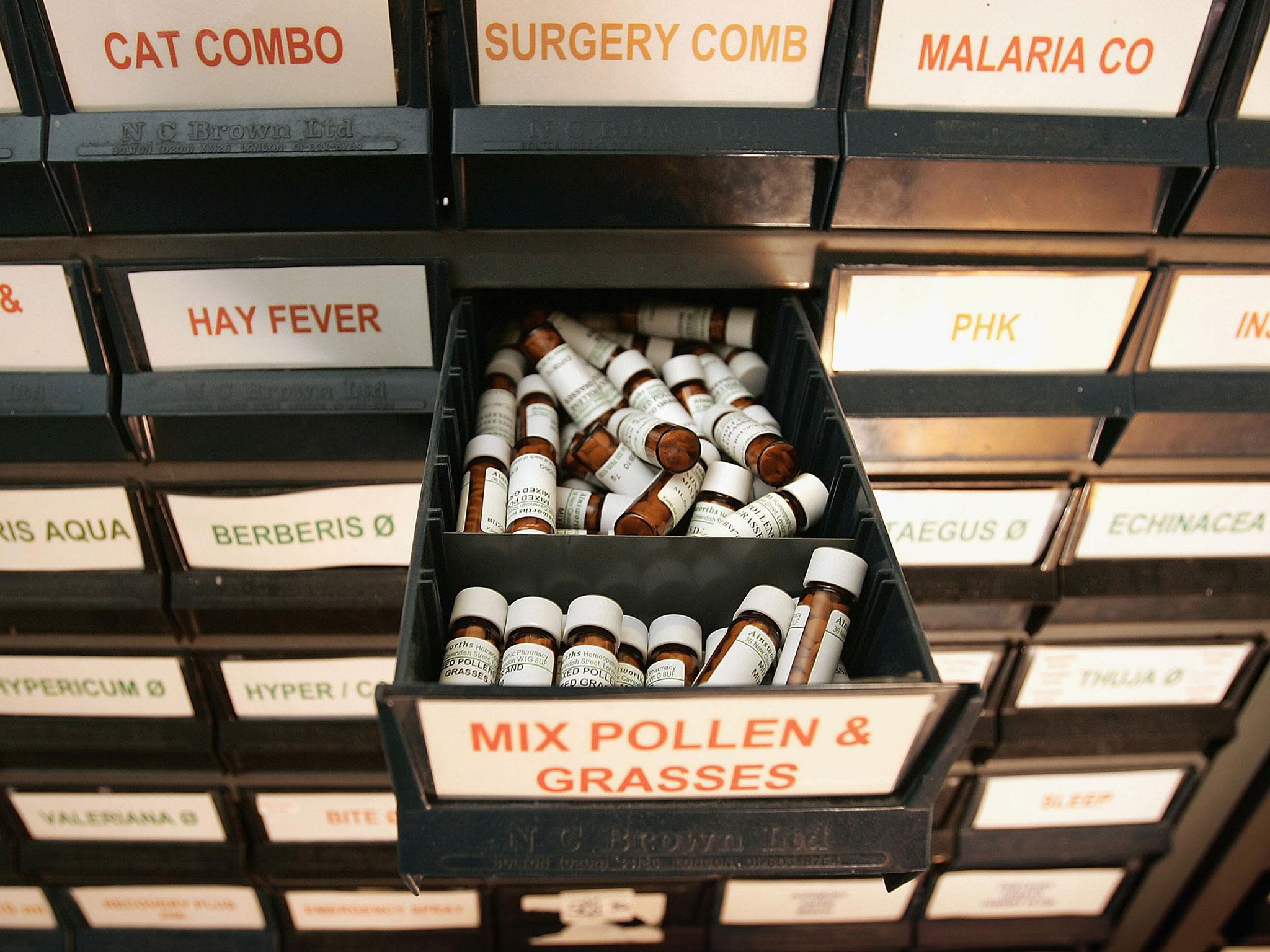Homeopathy 'treatments' must be labelled to say they do not work, US government orders
The Federal Trade Commission has demanded that producers of homeopathic treatments say on the label that they do not work

Your support helps us to tell the story
From reproductive rights to climate change to Big Tech, The Independent is on the ground when the story is developing. Whether it's investigating the financials of Elon Musk's pro-Trump PAC or producing our latest documentary, 'The A Word', which shines a light on the American women fighting for reproductive rights, we know how important it is to parse out the facts from the messaging.
At such a critical moment in US history, we need reporters on the ground. Your donation allows us to keep sending journalists to speak to both sides of the story.
The Independent is trusted by Americans across the entire political spectrum. And unlike many other quality news outlets, we choose not to lock Americans out of our reporting and analysis with paywalls. We believe quality journalism should be available to everyone, paid for by those who can afford it.
Your support makes all the difference.There is a huge market in the US for homeopathic remedies. In 2007 alone, it was estimated Americans spent more than $3bn on a controversial system of alternative medicine created in 1796 by Samuel Hahnemann, and which has long been dismissed by mainstream science.
Now, the US government is requiring that producers of such items ensure that if they want to claim they are effective treatments, then they need to make available the proof. Otherwise, they will need to point out that there is “no scientific evidence that the product works”.
“Homeopathy, which dates back to the late-eighteenth century, is based on the view that disease symptoms can be treated by minute doses of substances that produce similar symptoms when provided in larger doses to healthy people,” said a notice, filed earlier this month by the Federal Trade Commission.

“Many homeopathic products are diluted to such an extent that they no longer contain detectable levels of the initial substance. In general, homeopathic product claims are not based on modern scientific methods and are not accepted by modern medical experts, but homeopathy nevertheless has many adherents.”
Slate said there was near-unanimous mainstream scientific consensus that homeopathy’s purported mechanism of action - using ultra-highly diluted substances to allow “like to cure like” - runs counter to basic principles of chemistry, biology, and physics.
Health policy expert Timothy Caulfield recently said: “To believe homeopathy works … is to believe in magic.”
Yet, reports suggest the so-called treatments are unlikely to disappear from the shelves of pharmacists’ shops.
The FTC said that a homeopathic drug claim that is not substantiated by competent and reliable scientific evidence “might not be deceptive if the advertisement or label where it appears effectively communicates that: 1) there is no scientific evidence that the product works; and 2) the product’s claims are based only on theories of homeopathy from the 1700s that are not accepted by most modern medical experts.”
Join our commenting forum
Join thought-provoking conversations, follow other Independent readers and see their replies
Comments